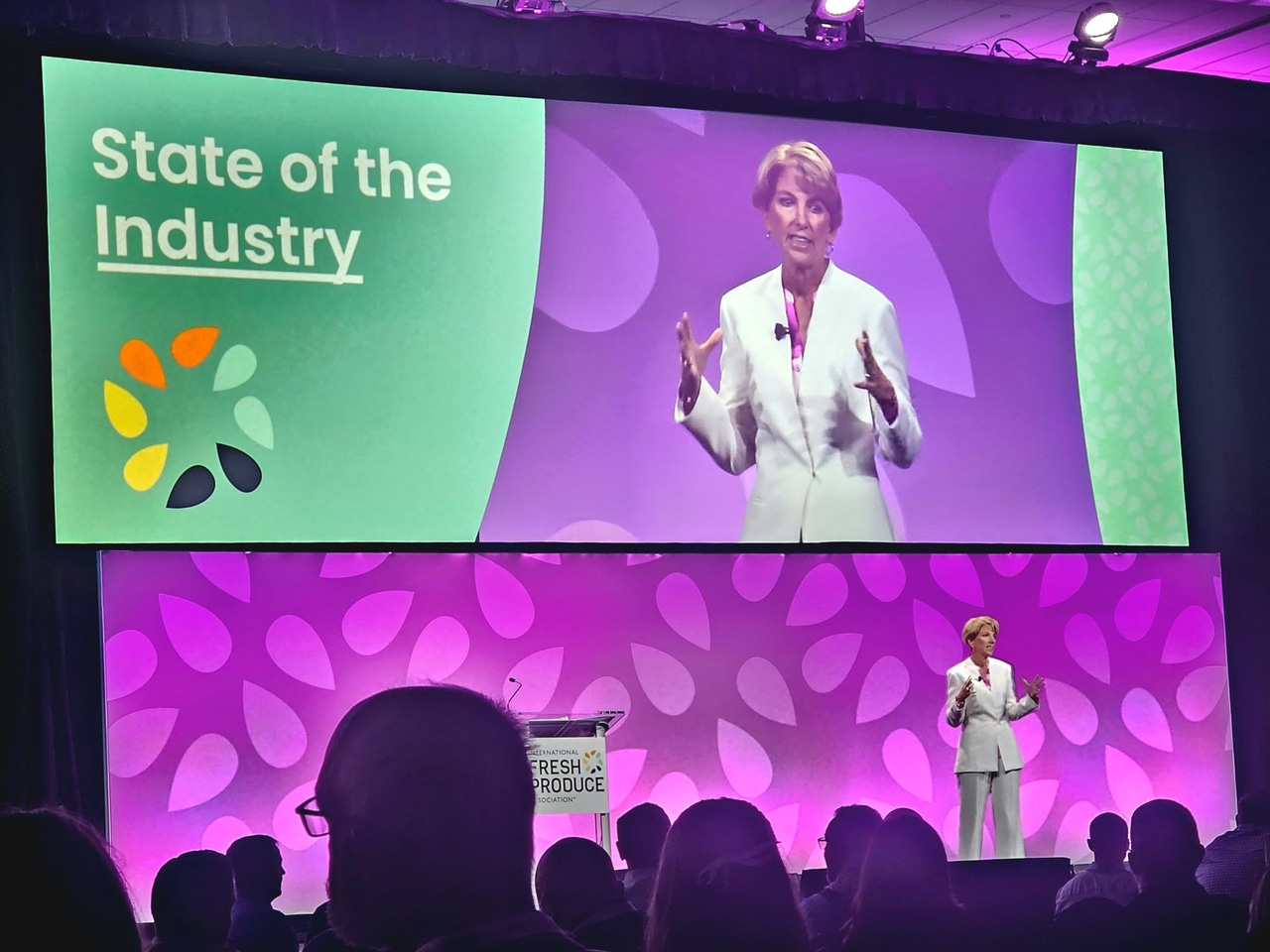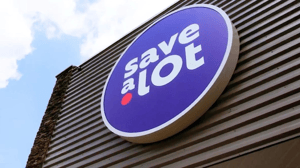Consumption, climate change and AI top list of produce industry worriesConsumption, climate change and AI top list of produce industry worries
In her state of the industry report at the Global Produce & Floral Show, International Fresh Produce Association CEO Cathy Burns said the business of fruits, vegetables and flowers “could be better” but there is much opportunity.

Getting people to eat more fruits and vegetables, looming climate-related disasters and the potential threats posed by artificial intelligence rank among the top concerns for the produce industry, according to International Fresh Produce Association (IFPA) CEO Cathy Burns.
Burns kicked off the second-annual Global Produce & Floral Show Thursday with a state of the industry address at the Anaheim Convention Center in California.
“The state of fruits, vegetables and flowers, that could be better,” Burns told the crowd. “The state of the world, grappling with challenges on all fronts. The state of our association, giving it our all to eliminate barriers to help you grow your businesses.”

IFPA CEO Cathy Burns gives a state of the industry address. / Photo: Heather Lalley
Burns said promoting fruit and vegetable consumption remains the IFPA’s “greatest hurdle” and that the group is “laser focused” on pushing nutrition prescriptions nationwide.
“We want to see them embedded in our healthcare system and ensuring that they are part of the clinical care standard products,” Burns said.
The growth of weight loss drugs like Ozempic, she noted, has made it “easier to turn to ‘pharm’ versus ‘farm’ for solutions” and the industry must work to change that.
Climate change, and the severe weather events caused by it, represent a major threat to produce and floral growers. Extreme weather events have more than doubled over the last 30 years and they could force 122 million more people into hunger and poverty over the next seven years, Burns said, citing data from the United Nations’ World Food Programme.
The IFPA is exploring regenerative agriculture and other ways to make crops more resilient, learning from work happening around the globe, she said.
What is less clear, Burns noted, is how artificial intelligence will impact the industry.
“Artificial intelligence has been hailed as both a savior and a demon,” she said. “The truth is, when it comes to major innovations, the hype almost always, always outweighs the reality at first.”
Regardless, she said, there’s a huge opportunity to automate tasks and free up employees for other types of work. An IFPA survey revealed that, while a third of workers are concerned about new technologies forcing them out of their jobs, nearly three-quarters (74%) said they are willing to retrain and learn new skills to be employable.
“Moving forward, I actually believe work will be less about where you sit and more about where you fit,” Burns said. “Now the best AI may be human in its ability to provide answers, but it is no replacement for the institutional knowledge and the relationships people have with each other.”
The Global Produce & Floral Show runs through Saturday.
About the Author
You May Also Like






